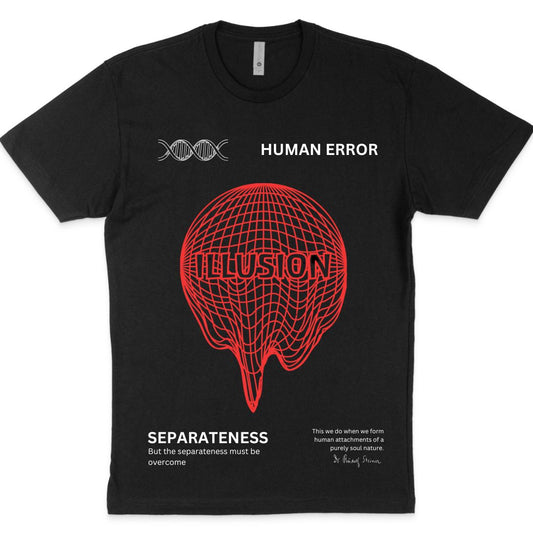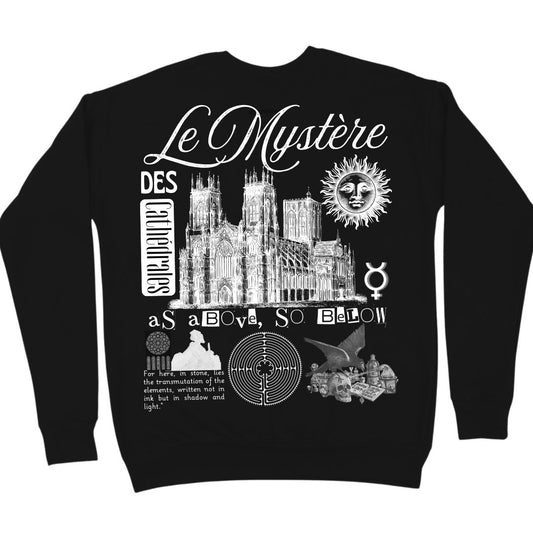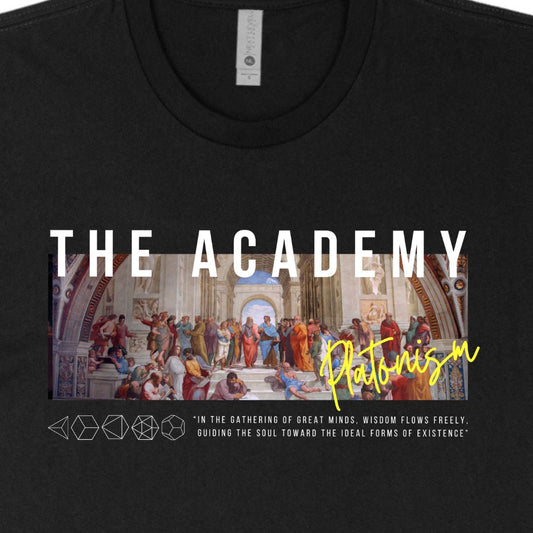Supporting Esoteric Research Through Meaningful Wear
Your contribution advances understanding of consciousness, spiritual science, and wisdom traditions
🔬 Our Research Focus
This collection supports comprehensive esoteric research investigating how ancient wisdom traditions inform modern consciousness studies. Each piece represents specific aspects of spiritual science, from hermetic principles to mystery school teachings that continue to guide human development.
💎 Contribution Transparency
- 70% Research Funding: Directly supports esoteric consciousness studies, wisdom tradition research, and making spiritual science accessible
- 30% Sustainable Creation: Ethical production honoring the sacred nature of wisdom symbols
Impact: Your support has funded research reaching 120,000+ seekers monthly, bridging ancient esoteric wisdom with contemporary consciousness science and spiritual development.
Esoteric Wisdom: The Science of Consciousness Development
What Is Esoteric Research?
Esoteric research investigates the inner dimensions of human experience—consciousness, spiritual development, and the subtle forces that shape reality. Unlike exoteric (outer) knowledge, esoteric wisdom addresses the direct experience of consciousness and its transformative potential.
Our research documents how traditional esoteric methods align with modern consciousness science, validating ancient wisdom through contemporary understanding.
The Living Tradition of Spiritual Science
Rudolf Steiner termed his work "spiritual science"—the application of rigorous observation to consciousness and spiritual phenomena. Our research continues this tradition, investigating how esoteric principles operate in contemporary life.
Core Research Areas
- Hermetic Principles: How "As Above, So Below" manifests in consciousness and physical reality
- Alchemical Transformation: Psychological and spiritual processes of inner change
- Sacred Symbolism: How traditional symbols affect consciousness and spiritual development
- Mystery School Methods: Ancient consciousness practices validated through modern research
- Initiation Processes: How traditional spiritual development stages apply to contemporary growth
- Esoteric Psychology: Inner dimensions of human nature beyond conventional psychology
Our Research Collections
Hermetic & Alchemical Research
The hermetic tradition offers sophisticated understanding of consciousness-reality correspondence. Our research investigates how hermetic principles apply to modern psychological and spiritual development:
- Emerald Tablet Wisdom: Practical applications of hermetic axioms
- Alchemical Psychology: Inner transformation processes
- Planetary Consciousness: How cosmic rhythms influence awareness
- Hermetic Healing: Consciousness-based approaches to wellbeing
Mystery School Traditions
Ancient mystery schools developed systematic approaches to consciousness transformation. Our research documents how these methods translate to contemporary spiritual practice:
- Egyptian Mysteries: Consciousness development through sacred geometry and symbolism
- Greek Mysteries: Psychological transformation through mythological engagement
- Rosicrucian Methods: Christian-hermetic approaches to spiritual development
- Anthroposophical Practice: Modern spiritual science applications
Contemporary Applications
How Ancient Wisdom Addresses Modern Challenges
Our research investigates how esoteric wisdom provides practical solutions to contemporary consciousness challenges:
- Digital Overwhelm: Traditional contemplative practices for modern attention challenges
- Spiritual Fragmentation: Integrated approaches to consciousness development
- Meaning Crisis: How esoteric perspective provides life purpose and direction
- Healing Applications: Consciousness-based approaches to physical and psychological wellness
- Educational Innovation: Esoteric principles in learning and development
Our Collection Features
- Authentic esoteric symbols - Each design researched from primary wisdom tradition sources
- Consciousness-supporting designs - Symbols selected for their documented effects on awareness
- Mystery school wisdom - Traditional symbols from initiation traditions
- Spiritual science applications - Designs reflecting modern esoteric research
- Cross-tradition synthesis - Universal principles appearing across wisdom traditions
- Practical spiritual tools - Wearable reminders of consciousness development practices
Research Partnerships
Our esoteric research collaborates with:
- Consciousness research institutes studying traditional contemplative methods
- Universities investigating the neuroscience of spiritual practices
- Anthroposophical research centers documenting spiritual science applications
- Depth psychology programs exploring archetypal and esoteric dimensions
- Wisdom tradition preservation societies maintaining authentic teachings
The Science Behind Esoteric Practice
Modern neuroscience, psychology, and consciousness research increasingly validate traditional esoteric methods. Our research documents how ancient practices produce measurable effects on brain function, psychological wellbeing, and spiritual development.
Evidence-Based Esoteric Research
- Meditation Neuroscience: How traditional contemplative practices alter brain structure and function
- Symbolic Psychology: How esoteric symbols affect consciousness and behavior
- Transformation Studies: Documenting stages of spiritual development across traditions
- Healing Research: Investigating consciousness-based healing approaches
- Educational Applications: How esoteric principles enhance learning and development
Wisdom Traditions in Our Research
Eastern Esoteric Traditions
- Buddhist Consciousness Studies: Awareness development and liberation methods
- Hindu Spiritual Science: Vedantic understanding of consciousness and reality
- Taoist Inner Alchemy: Natural harmony and spiritual transformation
- Zen Contemplative Practice: Direct consciousness experience methods
Western Esoteric Traditions
- Neoplatonic Philosophy: Consciousness emanation and return to Source
- Christian Mysticism: Esoteric dimensions of Christian spiritual practice
- Kabbalistic Studies: Hebrew wisdom and consciousness development
- Anthroposophical Research: Modern spiritual science applications
Join Our Research Community
When you support this collection, you become part of a global community dedicated to making esoteric wisdom accessible through rigorous research. Your contribution enables:
- Research into consciousness, spiritual development, and wisdom traditions
- Educational resources bridging ancient wisdom with modern understanding
- Digital archives making esoteric texts and teachings accessible
- Community programs exploring practical spiritual science applications
- Academic partnerships studying consciousness and spiritual development
- Translation projects making wisdom traditions available to contemporary seekers
🌟 Community Impact
Together, we've achieved:
- Funded research reaching 150,000+ seekers monthly with esoteric wisdom
- Created educational materials for spiritual development programs
- Supported translation of 20+ previously unavailable wisdom texts
- Built digital resources making esoteric traditions accessible to modern practitioners
- Facilitated research partnerships between wisdom traditions and consciousness science
Explore Specialized Research Areas
Discover specific wisdom traditions through our focused collections:
- Rudolf Steiner Research Support - Anthroposophical spiritual science
- Hermetic Research Support - Hermetic philosophy and alchemical wisdom
- Sacred Geometry Research Support - Mathematical consciousness principles
- Theosophical Research Support - Synthesis of Eastern and Western wisdom
- Anthroposophy Research Support - Modern spiritual science applications
- Rosicrucian Research Support - Christian-hermetic spiritual development
Why This Matters Now: In our age of materialistic reductionism and spiritual confusion, esoteric research provides evidence-based approaches to consciousness development and spiritual growth. Through this collection, we're not just wearing symbols—we're supporting the revival of scientific spirituality that humanity urgently needs for its next evolutionary step.
















